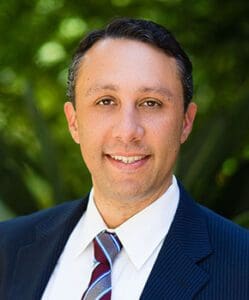Deciding to place a loved one in a nursing home is often an emotional and challenging choice, made with the hope of providing a safe, supportive environment for them to receive necessary care. Yet, despite expectations of safety, falls in nursing homes are unfortunately common and can result in serious injuries, prolonged recovery times, and even life-threatening complications. Families who have a loved one who has suffered a fall should be aware of the steps to take to ensure their safety, preserve their rights, and protect against possible negligence.
Consulting a compassionate Bellingham nursing home abuse attorney to guide you through each step is imperative to uphold your loved one’s rights and ensure they receive the justice they deserve.
Understanding the Seriousness and Risks of Falls in Nursing Homes
Falls in nursing homes are a serious issue, particularly for elderly residents, with the Centers for Disease Control and Prevention (CDC) reporting that approximately one in four older adults falls each year. In nursing homes, these incidents are especially concerning due to the increased vulnerability of residents, who often face physical limitations or cognitive impairments. Some risks contributing to falls include:
- Physical Limitations: Many residents in nursing homes have reduced mobility, balance issues, or cognitive impairments due to age, illnesses, or disabilities, making them more susceptible to falls.
- Poor Facility Conditions: Hazards like wet floors, uneven surfaces, insufficient lighting, and clutter can make even a short walk risky for residents.
- Inadequate Staffing: Understaffed facilities may lack the personnel needed to assist residents who require help with moving around, increasing the chances of falls.
- Side Effects of Medications: Many residents are on multiple medications, some of which can cause dizziness, drowsiness, or balance issues that make them more prone to falling.
Understanding these fall risks and how they can be prevented can also provide critical insights into whether a nursing home may be liable if a fall occurs. Consulting a nursing home attorney can help families assess if negligence may have played a role in their loved one’s fall and, if so, determine the appropriate steps forward.
Common Injuries from Nursing Home Falls and Their Consequences
Falls in nursing homes can lead to a wide range of injuries, some of which may require extensive medical treatment and recovery. The elderly are particularly susceptible to more severe injuries because their bones and tissues are often weaker and slower to heal. Common injuries from nursing home falls include:
- Fractures: Hip, wrist, and arm fractures are frequent outcomes of falls among elderly residents. With reduced bone density, even minor falls can result in broken bones, which may severely limit mobility and independence.
- Head Injuries: Traumatic brain injuries (TBIs) and concussions can occur from falls. Due to age-related vulnerability, older adults may suffer severe consequences, including brain bleeds or cognitive decline. Even a mild head injury can have lasting impacts.
- Spinal Cord Injuries (SCI): Falls can lead to spinal cord injuries, potentially causing chronic pain, limited mobility, or paralysis in extreme cases. Such injuries often require long-term care and rehabilitation.
- Cuts and Bruises: While cuts and bruises may seem minor, they can be painful and develop into serious infections, especially if not adequately treated. In elderly residents, even minor wounds can have profound health implications.
- Soft Tissue Injuries: Sprains, strains, and muscle tears are common, often causing ongoing pain and limited movement.
For families dealing with the aftermath of such an injury, it’s important to recognize the potential impact on their loved one’s physical and mental well-being. Consulting a nursing home attorney can help determine whether negligence contributed to these injuries and the appropriate legal avenues for seeking compensation to cover medical expenses, pain, and suffering.
What to Do After a Fall: Essential Steps for Families

If a fall occurs, the steps taken afterward are imperative to protect your loved one’s rights and pursue legal action if necessary. Although you may not be present when the fall occurs, here’s a guide on what to do if your loved one experiences a fall in a nursing home:
Document the Incident Thoroughly
Thorough documentation can play a significant role in understanding what happened and may be vital if you pursue legal action later. Consider taking the following steps to ensure accurate documentation:
Write Down Key Details
Write down everything you know about the fall, including the date, time, location, and any details your loved one or witnesses may provide about the incident.
Take Photos
If possible, take photos of the scene where the fall occurred. Capture any hazards that might have contributed, such as a wet floor, poor lighting, or obstacles.
Request Incident Reports
Nursing homes are legally required to record incidents like falls. Ask for a copy of the incident report and any related documentation, as this will help you understand the nursing home’s account of what happened.
Seek Medical Attention Immediately
Some injuries, such as fractures or internal bleeding, might not be immediately visible, especially in elderly individuals. Even if your loved one appears uninjured, it’s in their best interest to have them evaluated by a medical professional promptly. This medical assessment can not only safeguard their health but also provide necessary documentation if a claim is needed.
Closely Monitor Their Condition After the Fall
Following a fall, monitor your loved one closely for any signs of pain, discomfort, or changes in their mental or physical state. Document any symptoms that arise, such as:
- Increased pain or limited mobility
- Confusion or disorientation
- Visible bruising or swelling
- Emotional distress or behavioral changes
Should any symptoms worsen or new ones appear, consult a healthcare professional promptly. Having detailed notes on these changes can be helpful if you pursue legal action, as it demonstrates the ongoing impact of the fall.
Understanding Nursing Home Liability for Falls
Nursing homes have a legal duty to provide a safe environment for their residents. This responsibility means they must take reasonable steps to minimize the risk of falls and respond appropriately if one occurs. If a nursing home fails in this duty and an unsafe condition or neglect leads to a fall, they may be liable for the resident's injuries. A nursing home attorney can help families investigate the circumstances of a fall, identify possible negligence, and take legal steps to hold the nursing home accountable.
Types of Nursing Home Negligence Leading to Falls
Several forms of negligence can contribute to falls in nursing homes abuse, including:
- Lack of Proper Supervision: Nursing homes that fail to provide adequate supervision may be considered negligent. Residents at high risk of falling should be closely monitored.
- Failure to Maintain a Safe Environment: Nursing homes are responsible for ensuring their facilities are free from hazards. This includes regularly inspecting and maintaining the premises to avoid slip and trip hazards.
- Inadequate Staff Training: Nursing home staff should be trained to help residents move safely, prevent falls, and identify fall risks. Insufficient training can result in avoidable accidents.
- Medication Mismanagement: Nursing homes must manage medications responsibly, particularly those that may cause side effects like dizziness or balance issues. If a fall occurs due to improper medication management, it may be grounds for a negligence claim.
Proving Negligence in Nursing Home Fall Cases
In a nursing home fall case, proving negligence is essential to holding the facility accountable. This requires showing that:

- Duty of Care: The nursing home had an obligation to ensure a safe environment for its residents.
- Breach of Duty: The nursing home did not meet this obligation, creating unsafe conditions or failing to provide adequate supervision.
- Causation: The breach of duty directly led to the fall and subsequent injuries.
- Damages: The resident suffered injuries and financial losses due to the fall.
A nursing home attorney can assist in gathering the necessary evidence to establish each of these elements, including medical records, incident reports, witness testimonies, and, if possible, surveillance footage. Skilled legal representation can make a significant difference in demonstrating that the nursing home’s negligence caused the fall.
How a Nursing Home Attorney Can Help
If your loved one has fallen in a nursing home, navigating the aftermath alone can be overwhelming. Hiring an experienced nursing home attorney can provide valuable assistance by helping you understand your rights, gather evidence, and advocate for your loved one. Here’s why consulting a nursing home attorney is in your best interest:
In-Depth Knowledge of Nursing Home Laws
Attorneys who focus on nursing home injury cases understand the relevant state and federal laws governing these facilities. They know the rights of nursing home residents and the obligations that nursing homes have to provide safe and secure environments.
Conducting Thorough Investigations
A nursing home attorney can thoroughly investigate the fall, examine incident reports, obtain medical records, interview witnesses, and analyze the nursing home’s protocols and safety practices. This level of detail is necessary for building a strong case.
Negotiating with Insurance Companies
Nursing homes often carry liability insurance to cover claims, but dealing with insurance companies can be challenging. Nursing home attorneys are skilled negotiators who know how to advocate for fair compensation on your behalf, handle all communication, and protect your interests.
Representing You in Court
If a fair settlement cannot be reached, a nursing home attorney can file a lawsuit on your behalf and represent you in court. Having legal representation significantly increases the chances of success, as these attorneys know how to present compelling arguments and effectively manage trial procedures.
What to Expect When Pursuing a Nursing Home Injury Case
The legal process for nursing home injury cases may be complex, but understanding the typical stages can help you prepare. Here’s a general outline of what to expect:
- Investigation and Evidence Gathering: Your attorney will start by gathering all relevant evidence, including medical records, witness statements, video surveillance footage (if available), and incident reports.
- Demand Letter: Once the evidence is reviewed, the attorney will prepare a demand letter to the nursing home or its insurance company, outlining the case and compensation sought.
- Negotiations: Negotiations with the nursing home or insurance company may follow. If both parties agree on compensation terms, a settlement may be reached.
- Filing a Lawsuit: If negotiations fail, the attorney will file a lawsuit, entering a formal legal process that may lead to a trial.
- Discovery: Both sides will exchange evidence and depose witnesses during the discovery phase.
- Trial or Settlement: Many cases settle before trial. However, if no agreement is reached, the case may go to trial, where the attorney will present evidence and arguments for compensation.
Compensation Available in Nursing Home Fall Cases
A successful claim may result in various losses, including:
- Medical Expenses: Reimbursement for all medical bills related to the fall. Often, physical injuries to vulnerable adults require extensive treatment, including hospitalization, which can be costly.
- Pain and Suffering: Compensation for physical pain and mental trauma caused by the fall. This can also cover effects on the victim's life, including emotional suffering and other intangible losses.
- Punitive Damages: In cases of severe negligence, punitive damages may be available to punish the nursing home and deter similar future behavior. This might occur when a nursing home is aware abuse is happening and looks the other way.
Consult a Knowledgeable Nursing Home Attorney Today

If your loved one has suffered a fall in a nursing home, you don’t have to face the aftermath alone. A skilled nursing home attorney can handle the often-confusing legal process, protect your loved one’s rights, and pursue the compensation they deserve. Inadequate staffing, lack of supervision, and unsafe conditions are all issues a knowledgeable attorney can investigate to strengthen your case.
By consulting with an experienced Bellingham personal injury attorney, you take an important step toward ensuring that your loved one receives justice, holding the nursing home accountable, and shedding light on systemic issues that might be affecting other residents. Take action today to protect your loved one’s future, well-being, and dignity. Most nursing home attorneys offer free consultations. Some even work on contingency fees, so it costs you nothing to get your case started.